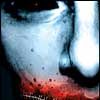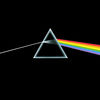mda
cam penibil (din partea mea, ma grabesc sa adaug!)
rog adm. sa stearga timpenia mea d mai sus; a fost clar un malentendu, credeam k dl airlight face referire la prezenta mea gratioasa intr-un ziar deloc gratios... :lol:
dar - venind acum la kestiune - sa stiti, domnu airlight, k nu e DELOC, da DELOC, ac. lucru! aici e vba d o regula nescrisa - i.e. NU s dau 'drepturi la replik' pt o cronik!, va dati seama ce-ar fi dk - prin absurd - s-ar da!?! :w00t:
altfel, sigur k vreau sa am ult. cuvint in anumite kestiuni -
cine nu are?!
si asta-mi vine din faptul k eu cred k i'm usually right...

recomand, in ac. pct al discutiei, aceasta splendida recenzie care m-a facut sa ma indragostesc d un domn, robert hughes p numele lui, d care - spre rushinea mea - nu auzisem... acum, k am auzit, nu pot spune decit: robert hughes, c'est moi! 8)
iata recenzia:
A cultural critic makes no apologies for being an elitist.
By Jonathan Yardley
Sunday, September 24, 2006; BW02
THINGS I DIDN'T KNOW
A Memoir
By Robert Hughes
Knopf. 395 pp. $27.95
Robert Hughes has been many things in his more than six and a half decades -- art critic, biographer, historian, polemicist, television commentator -- and he has done all of them exceedingly well. As art critic for Time magazine from 1970 to 2001 (and a continuing contributor), he raised the standards of magazine criticism to new heights and demonstrated conclusively that it is possible to write serious criticism in a mass-market publication. His survey of modern art, The Shock of the New (1981), was and remains the definitive book on the subject, though Hughes's vigorous opinions do not always sit well with certain factions in the exquisitely vicious art world. The Fatal Shore (1987), his history of the founding of Australia , his native country, is a masterpiece of the popular historian's art. His portrait of a great Spanish city, Barcelona (1992), and his biographical study, Goya (2003), are superb examples of their respective genres.
Now Hughes has turned his hand to autobiography, with predictably and gratifyingly rewarding results. His has been a writer's life, and, like most such lives, it has been primarily a life of the mind. Such drama as he has experienced -- two unhappy marriages before a lucky third one, the suicide of his 33-year-old son, a terrible auto accident that brought him within a breath of death -- certainly has been painful, but except for the accident, he devotes relatively little space to these matters in this memoir, preferring reticence over display where private business is concerned, a merciful choice in this age of self-servingly confessional memoirs that attempt to cash in on real or fancied business of the most intimate nature.
The story Hughes prefers to tell, as his title suggests, is the story of his education -- not so much of his formal education, though he does have interesting things to say about the Jesuits who taught him at an Australian boarding school, as about what he learned out in the world. As he says of a book on which he worked when he was young, a biography of Leonardo da Vinci that he never completed: "I realized that my main impulse for writing a book was to force myself to find out about things I didn't know. It has always been like that; the reason for this memoir is the same, to excavate and bring into the light things I had forgotten or repressed, along with the stuff that remained at the front of my awareness. Otherwise, why do it at all?"
Hughes's rise to the eminence he now enjoys did not come easily and began in somewhat unlikely circumstances. His family lived in Sydney and was rather prosperous, but the familial environment was not conducive to the artistic interests that eventually became his life's preoccupation. Born in 1938, he was by a dozen years the youngest of his parents' four children. He never really knew his father, who died when he was 12 but whose influence on him nonetheless was great: "This righteous and inflexible man, a brave warrior but not a professional soldier, a war hero who shot down eleven German planes in the First World War, a fiercely orthodox Catholic, and an intense patriot, determined the direction and conditions of my life. It was at least partly in reaction against him, and what he stood for, that I became an expatriate, a political skeptic, an atheist, a liberal, a voluptuary, and, in most ways, a disappointment to the ethos he lived by. And, perhaps no more creditable than these, a writer about art."
The young Hughes's "introduction to the visual arts" began with cartoons in Punch, the British humor magazine, and a series of illustrated children's books, but it wasn't until he was 15 that a wise teacher got him thinking about the nature of art, and it wasn't until more than a decade later that the full dimensions of his calling were revealed to him. He was in Italy , contemplating "a quite staggeringly complicated and ambitious [14th-century] painting" known as the Maest�*, by Duccio di Buoninsegna:
"Art, I now realized, was the symbolic discourse that truly reached into me -- though the art I had seen and come to know in Australia had only done this intermittently and weakly. It wasn't a question of confusing art with religion, or trying to make a religion out of art. As some people are tone-deaf, I was religion-deaf, and in fact I would have thought it a misuse, even a debasement, of a work of art to turn it into a mere ancillary, a signpost to some imagined, hoped-for, but illusory experience of God. But I was beginning, at last, to derive from art, from architecture, and even from the beauty of organized landscape a sense of transcendence that organized religion had offered me -- but that I had never received."
Earlier, from the Jesuits, Hughes had learned that "no matter what the demands of 'self-_expression' may be, nothing is anything without fully articulate, conscious form." This conviction, coupled with his passionate belief in the transcendent possibilities of art, permitted Hughes to evolve over the years into modern art's most demanding critic. Deeply sympathetic to "the hostile, nervy freedom from parental and religious authority embodied by Surrealism," he nevertheless insisted that art had to be more than "new" to be good, and over the years he came to be a fierce opponent of the faddism to which the art world is so susceptible. He was strongly influenced by the writing of Kenneth Clark, Cyril Connolly and, especially, George Orwell, whose "direct use of the English language, in exposition and in argument," and whose willingness to follow his own nose he emulated to obvious and happy effect.
He started writing about art in Australia in the late 1950s for the Observer, "a fortnightly journal of political and cultural opinion modeled on the English Spectator ," and that is when his education really began. By fortunate coincidence, it was a moment when Australian art, long under the thumb of a conservative Old Guard, began to take tentative steps toward independence and originality, but not much of it was very good, and Hughes had begun to sense "a deep dysfunction in my Australian nature. I didn't feel altogether at home either in the bush or on the beach." He became friends with the distinguished writer Alan Moorehead, best known as the author of The White Nile and The Blue Nile , "my beau ideal of a popular historian," and in time, no doubt, his model for the writing of The Fatal Shore . Moorehead told him in 1962 that "I would have to leave Australia , just as he had done, if my work was ever to go anywhere." Moorehead said: "If you stay here another ten years, Australia will still be a very interesting place. But you will have become a bore, a village explainer."
So with little to his credit except letters of introduction from Moorehead and a bit of money, Hughes headed for the United States and then for London, where "I knew nobody and I felt lost -- a provincial Australian in a place that still, in 1964, tended to look down on Australians." He began to educate himself at the city's great museums, though, and then took up Moorehead's offer to use his house at Porto Ercole, in Italy . His months in that country left him "more at ease in the world and filled with delight at what its human and inanimate contents could mean, say, and create," and when he returned to London in the mid-1960s, he was far better equipped to fit in and find work.
He also arrived in London just as the 1960s were turning into the Sixties. He seems to have done his share of dope and swinging, and he married a woman who was the embodiment of Sixties excess, but he never fell for the "collective self-importance" of the " London underground" with its "adoration of the unbridled truth of the self." He "never for a moment believed the promises of Revolution Now that were floating about -- all that messianic drivel about changing the world by dropping out of it," and he "sensed then, and know with a fair degree of certainty now, that it is an illusion to suppose that sexual promiscuity helps create personal freedom. There is a huge difference between the condition of freedom and that of accepting no responsibilities to anyone."
Most important for the career that was to follow, he rejected "the idea that there was something inherently repressive about old art, as though the past were a dead weight that new art, young art, had to shake off." He learned that "the past is pervasive; it seeps into everything; it is the very air that artists and their public breathe," and he lost for good "a belief in the potency of the avant-garde." He writes: "I have never regained it, and today, looking at the ever-more-feeble efforts on the part of the art world to designate its latest products as 'cutting-edge,' 'edgy,' 'radical,' etcetera, I am not in the least sorry to have lost it. Some new works of art have value of some kind or another. Others, the majority, have little or none. But newness as such, in art, is never a value."
So in 1969, when Time invited him to try out for the position of art critic, he was ready. It was, as he says, still a more or less serious magazine then and it paid far more attention to books and the arts than it does now. Though Hughes is more generous to its founder, Henry Luce, than I would be, he is right to credit its managing editor at the time, Henry Grunwald, with keeping its "cultural priorities" straight. The newsmagazines mattered then in ways they no longer do, and in his three decades at Time, Hughes had much to do with the reputation it enjoyed.
Hughes is, by his own rather defiant declaration, "completely an elitist, in the cultural but emphatically not the social sense." He is, "after all, a cultural critic, and my main job is to distinguish the good from the second-rate, pretentious, sentimental, and boring stuff that saturates culture today." He quite properly refuses to apologize for this: "I am no democrat in the field of the arts, the only area -- other than sports -- in which human inequality can be displayed and celebrated without doing social harm." How right he is, and how vigorously he argues his case -- which is to say the case for informed judgment independent of fashion -- in this splendid book. ·
Jonathan Yardley's e-mail address is
[email protected].
[/i]


























































